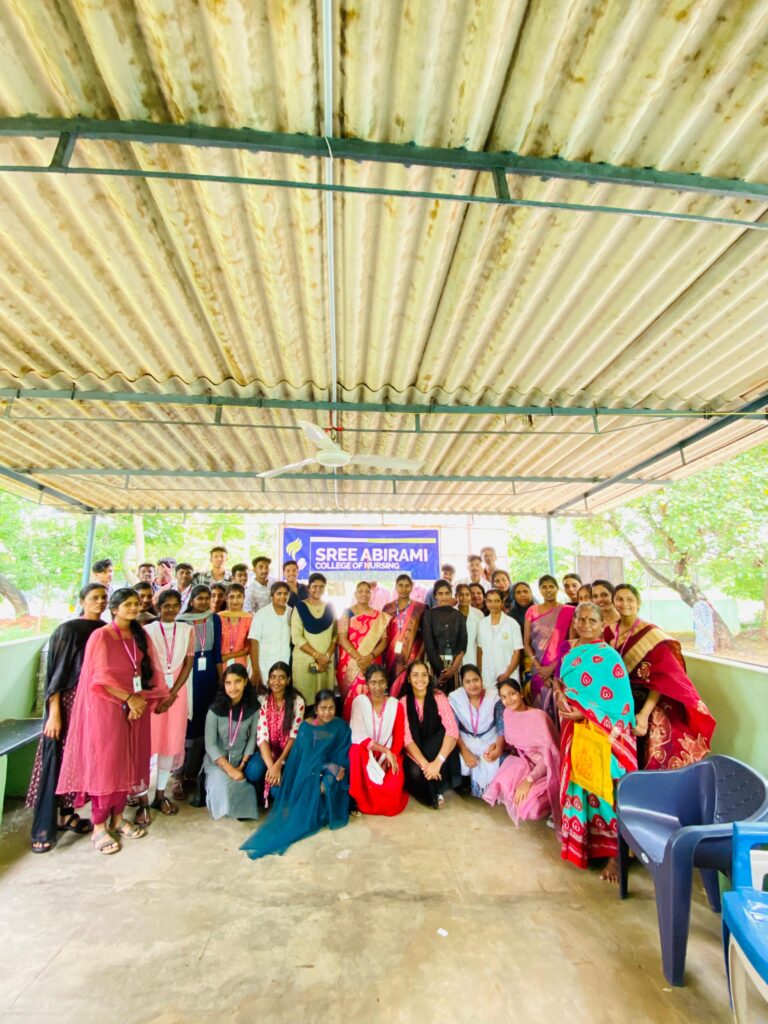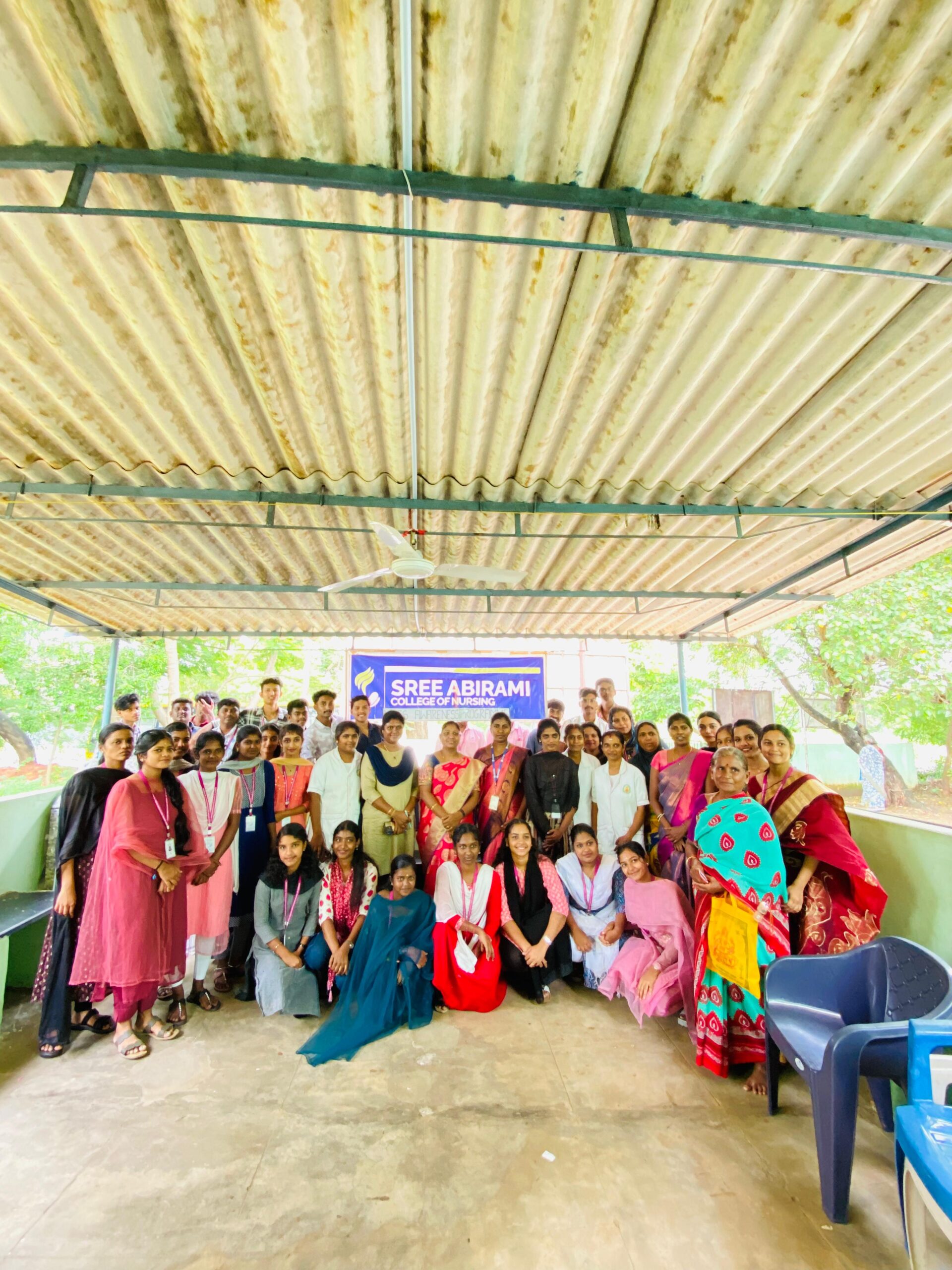
Mass Awareness Program on Protein Energy Malnutrition and Tobacco Use
Organized by Sree Abirami School of Nursing, Coimbatore
Date: 18th June 2025 | Venue: PHC, Zaminpuravipalayam
Sree Abirami School of Nursing continues to take bold and meaningful steps toward community health education by combining creativity, compassion, and hands-on learning. On 18th June 2025, the first-year GNM students conducted a highly impactful Mass Awareness Program at the Zaminpuravipalayam Primary Health Centre, focusing on two major public health concerns: Protein Energy Malnutrition (PEM) and Tobacco Use.
The initiative was designed not only to raise awareness among the rural community but also to strengthen the communication, leadership, and presentation skills of nursing students. It offered a perfect example of how future nurses are being prepared to serve as health educators, advocates, and change agents in society.
The program commenced with a prayer song, setting a positive and respectful tone for the gathering. Following this, Dr. Shobana, a respected figure in the medical field, delivered an insightful talk. She explained the causes, symptoms, prevention, and treatment of Protein Energy Malnutrition, which continues to affect many children in underserved regions. She also drew attention to the devastating impact of tobacco, both physically and mentally, urging the community to take the issue seriously.
Next, Prof. Rajeshwari, a senior faculty member, addressed the audience and emphasized the importance of community-level awareness. She highlighted the critical role that nurses and healthcare professionals play in promoting healthier practices and preventing disease through timely education and outreach.
The program stood out due to its creative and interactive content. The students performed a powerful role play depicting the life of a bright student who gradually falls into the trap of tobacco and substance use due to peer pressure. The character’s journey from addiction to arrest, followed by rehabilitation and recovery, struck an emotional chord with the audience and effectively showcased the harsh reality and hopeful possibility of recovery.
In addition, a puppet show focused on Protein Energy Malnutrition was performed to simplify complex health messages. It creatively explained that PEM is mainly caused by a lack of protein and calorie-rich food, particularly among children. Using easily relatable visuals and storytelling, the show encouraged the intake of protein-rich foods such as milk, eggs, legumes, and energy-rich staples like rice and oil. The importance of early diagnosis, timely medical intervention, and proper child feeding practices was demonstrated.
To further reinforce the health message, a dance performance themed around the ill effects of smoking was presented by the students. With expressive choreography and powerful music, the act highlighted the toxic grip of tobacco on health and called for immediate quitting. It left a lasting impression on the audience, especially the youth.
The residents of Zaminpuravipalayam responded with overwhelming support and interest. Their attentiveness and appreciation underscored the importance and relevance of health education at the grassroots level. The program concluded with refreshments for attendees, creating a warm and inclusive atmosphere that reflected the hospitality and community spirit of the event.
Overall, the Mass Awareness Program was a resounding success. It not only educated the community about malnutrition and tobacco use but also gave nursing students an invaluable opportunity to apply their knowledge in real-world settings. Through engaging methods like drama, puppetry, and dance, the health messages were communicated memorably and effectively.
Sree Abirami School of Nursing remains committed to nurturing future nurses who are not only clinically skilled but also socially responsible. Initiatives like this prove that learning goes beyond the classroom—and that meaningful community interaction is a key step toward building a healthier tomorrow.
